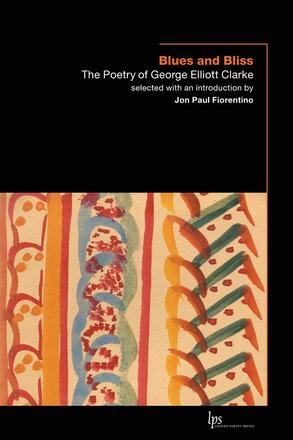
Description
Blues singer, preacher, cultural critic, exile, Africadian, high modernist, spoken word artist, Canadian poet—these are but some of the voices of George Elliott Clarke. In a selection of Clarke’s best work from his early poetry to his most recent, Blues and Bliss: The Poetry of George Elliott Clarke offers readers an impressive cross-section of those voices. Jon Paul Fiorentino’s introduction focuses on this polyphony, his influences—Derek Walcott, Amiri Baraka, and the canon of literary English from Shakespeare to Yeats—and his “voice throwing,” and shows how the intersections here produce a “troubling” of language. He sketches Clarke’s primary interest in the negotiation of cultural space through adherence to and revision of tradition and on the finding of a vernacular that begins in exile, especially exile in relation to African-Canadian communities.
In the afterword, Clarke, in an interesting re-spin of Fiorentino’s introduction, writes with patented gusto about how his experiences have contributed to multiple sounds and forms in his work. Decrying any grandiose notions of theory, he presents himself as primarily a songwriter.
Reviews
``Blues and Bliss...[is] put out...through the wonderful Laurier Poetry Series. The series aims to make the work of Canadian poets more accessible through a format in which a critic introduces 35 poems from across the career of a major poet. In this helpful volume, Jon Paul Fiorentino calls Clarke's voice `polyphonic,' that is, a unique blend of identities that includes blues singer, preacher, cultural critic, exile, Africadian, high modernist, spoken-word artist and Canadian poet.... The selection of poems which includes pieces from seven books, including the now Canadian-canonized Whylah Falls, is testament to the range of cadence and rhythm that makes up Clarke's multivocal range.''
- Sonnet L'Abbé
``The quest for a wider audience for poetry may be quixotic, but this series makes a serious attempt to present attractive, affordable selections that speak to contemporary interests and topics that might engage a younger generation of readers. Yet it does not condescend, preferring to provide substantial and sophisticated poets to these new readers. At the very least, these slim volumes will make very useful introductory teaching texts in post-secondary classrooms because they whet the appetite without overwhelming.''
- Paul Milton
``What is included here is fabulous.''
- Mary Shearman
``In being removed from their original contexts, these poems shine anew. Viewed apart from the rest of the poems in Black, Letter to a Young Poet seems even stranger, a successful and disturbing piece of standalone verse that fusses the high modernism of Ezra Pound with frightening, dare I say, Stephen King-like imagery.... A welcome feature to the books in the Laurier Poetry Series are the autobiographical postscripts provided by the poets, a nice touch that will appeal to readers unfamiliar with the names behind the poetry.''
- Christopher MacKinnon